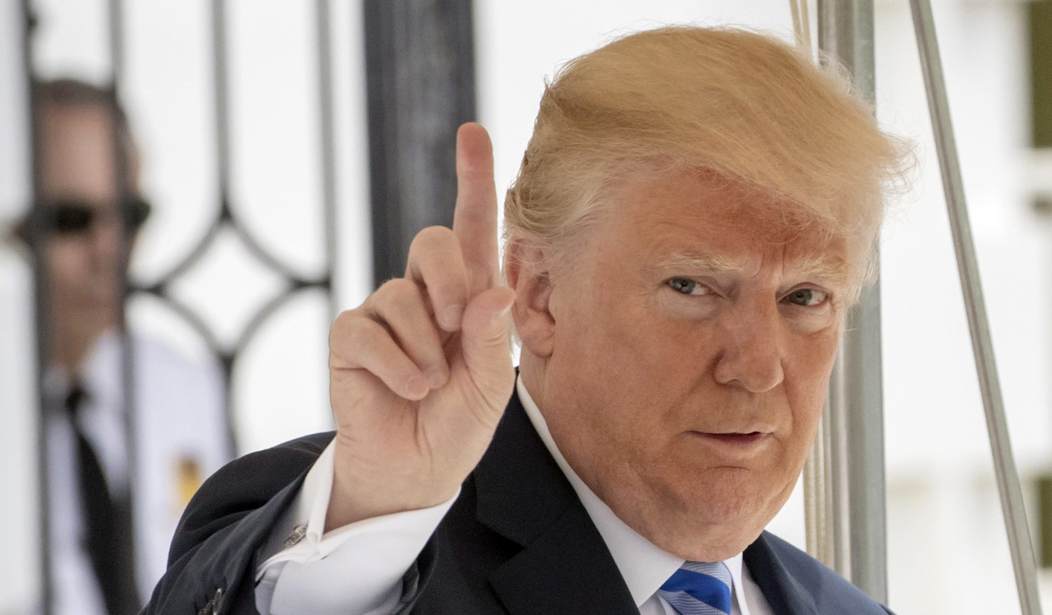On Friday, the Trump campaign filed a defamation lawsuit against CNN over false claims regarding collusion with Russia. The suit demands “compensatory damages in the millions of dollars,” along with punitive damages. This is the third such lawsuit against major media outlets regarding allegedly “false and defamatory” articles about Russia collusion. The campaign sued The New York Times last month and The Washington Post earlier this week.
“Today the President’s re-election campaign has filed suit against CNN for false statements, claiming that the campaign ‘assessed the potential risks and benefits of again seeking Russia’s help in 2020 and has decided to leave that option on the table.’ The statements were and are 100 percent false and defamatory,” Jenna Ellis, senior legal adviser to the Trump campaign, said in a statement. “The complaint alleges CNN was aware of the falsity at the time it published them, but did so for the intentional purpose of hurting the campaign, while misleading its own readers in the process.”
“Further, the campaign, through counsel, sent a written demand to CNN on February 25, 2020 to retract and apologize for the false and defamatory statements. CNN refused, so the campaign was left with no alternative but to file suit to publicly establish the truth and seek appropriate remedies,” Ellis added.
“The campaign filed this lawsuit against CNN and the preceding suits against The New York Times and The Washington Post to hold the publishers accountable for their reckless false reporting and also to establish the truth: that the campaign did not have an agreement, quid pro quo, or collusion with Russia, as the Mueller Report concluded,” the campaign spokeswoman explained. “The campaign was motivated by the fact that the publications recklessly published false statements which caused harm and intentionally mislead their readers. False statements are not protected under the U.S. Constitution; therefore, these suits will have no chilling effect on freedom of the press. If journalists are more accurate in their statements and reporting, that would be a positive development, but not why these suits were filed.”
In the lawsuit, the campaign points to a June 13, 2019 article by Larry Noble, former general counsel of the FEC and a CNN contributor. The article, entitled “Soliciting dirt on your opponents from a foreign government is a crime. Mueller should have charged Trump campaign officials with it,” the article claims that Trump’s campaign “assessed the potential risks and benefits of again seeking Russia’s help in 2020 and has decided to leave that option on the table.”
The lawsuit claims the article is entirely false.
In fact, the Campaign has repeatedly and openly disclaimed any intention to seek Russian involvement in the 2020 election. The examples of this are too numerous to fully enumerate, but examples include: (a) then-Press Secretary Sarah Sanders stated on August 2, 2018 that “[s]ince the beginning of his administration, President Trump has implemented a whole-of- government approach to safeguard our nation’s elections. The President has made it clear that his administration will not tolerate foreign interference in our elections from any nation-state or other dangerous actor”; (b) on September 12, 2018, while signing an executive order imposing sanctions on foreign countries who interfere in United States elections, the White House issued a statement that “the United States will not tolerate any form of foreign meddling in our elections”; and (c) on May 13, 2019, the White House stated it would not use any information hacked or stolen by foreign adversaries in the 2020 election.
The First Amendment defends freedom of speech and freedom of the press, but there are limits to both. Defamation of character is one such exception, although it has been highly limited by the Supreme Court decision New York Times v. Sullivan (1964). In the case of alleged defamation against a public figure like the Trump campaign, the campaign would have to prove malicious intent and a reckless disregard for the truth.
The lawsuit cites evidence of bias against the Trump campaign and claims both maliciousness and that reckless disregard.
The lawsuit points to tweets from Noble demonstrating animus against Trump. It also cites the Project Veritas sting videos against CNN.
“In the Project Veritas footage, Nick Neville, a Media Coordinator at CNN, admits that CNN’s chief executive, Jeff Zucker, has a personal vendetta against the President,” the lawsuit notes. “John Bonifield, a Supervising Producer at CNN, states in the Project Veritas footage that CNN’s coverage regarding Russia’s alleged interference with the 2016 election was ‘mostly bulls**t’ and that the President ‘is probably right to say…you are witch hunting me.'”
It is important to note that President Donald Trump did not bring this lawsuit and he is not a party in it, but his campaign is. CNN settled a defamation lawsuit from Covington Catholic High School teen Nick Sandmann early this year.
Tyler O’Neil is the author of Making Hate Pay: The Corruption of the Southern Poverty Law Center. Follow him on Twitter at @Tyler2ONeil.









Join the conversation as a VIP Member